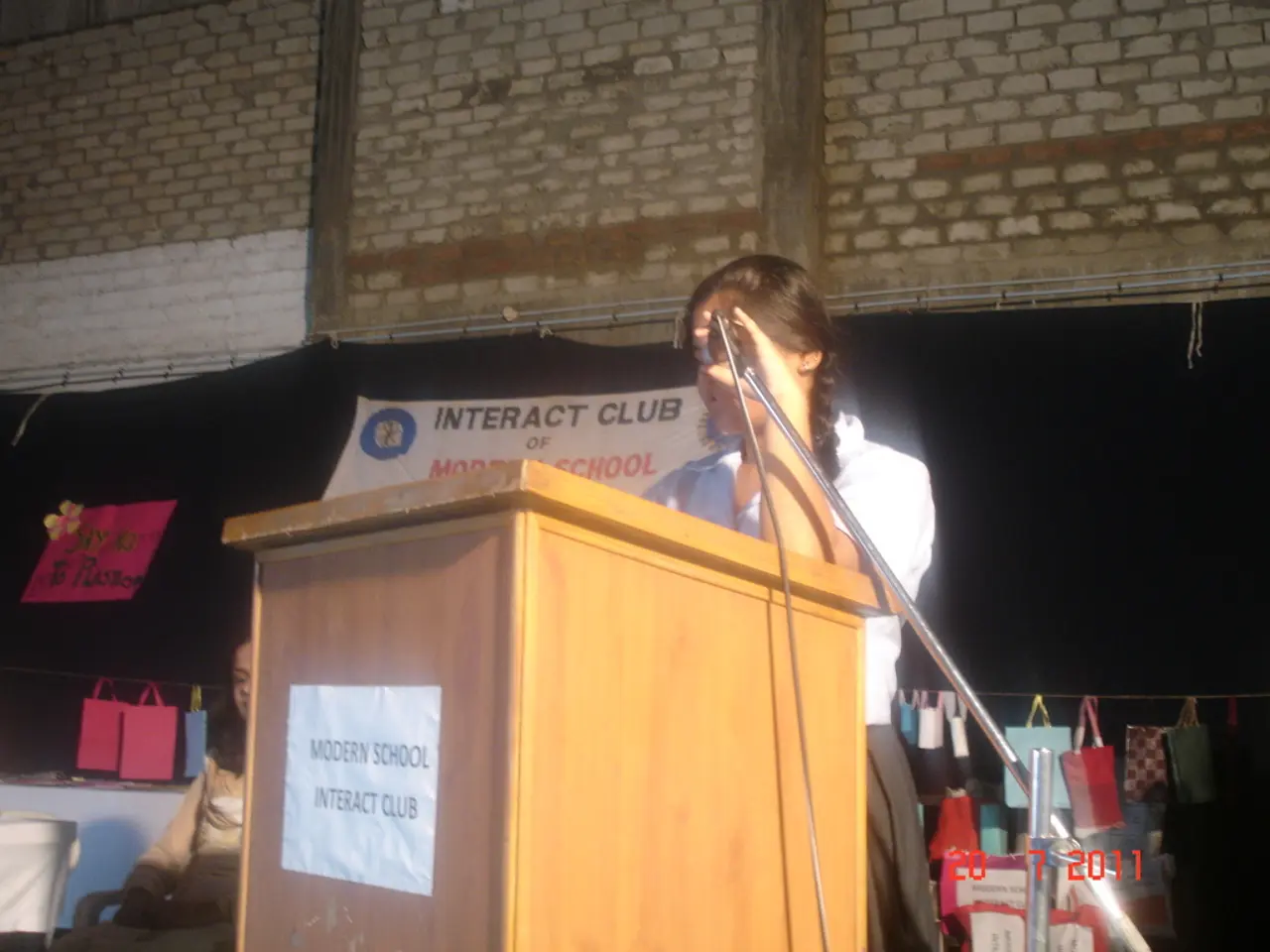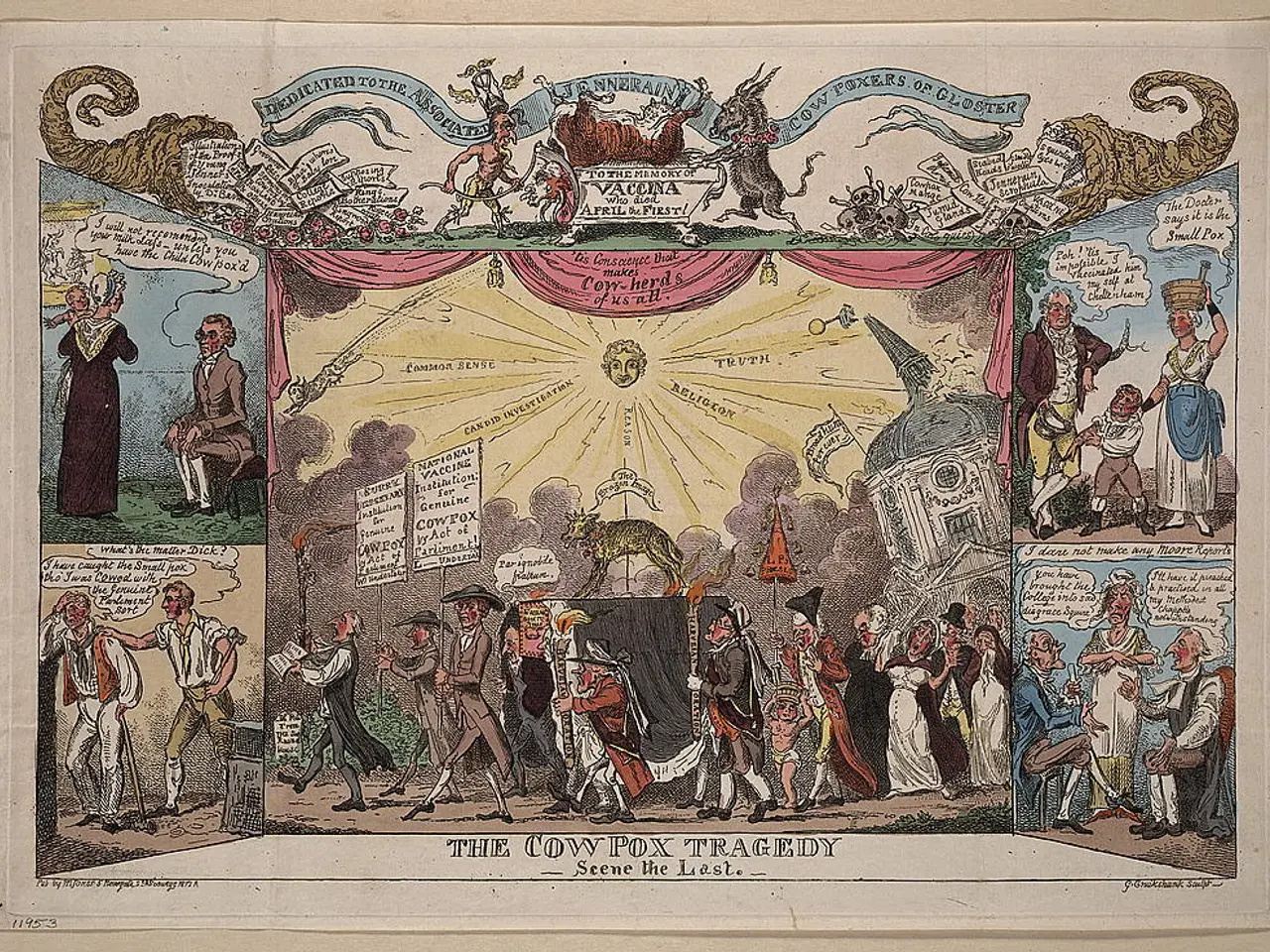Union faction's emergency gathering post suspending weapon deliveries to Israel - Political gathering of the Union's political faction discussing the temporary halt in weapons deliveries to Israel
In an unexpected turn of events, the Union faction, a key political group in Germany, has called for an emergency meeting to discuss the partial arms export ban to Israel. The ban, which was decided by foreign policy advisor to Merz, Günter Sautter, is expected to be the main topic of the meeting.
The emergency meeting, scheduled to last one hour, is related to foreign policy issues and is specifically regarding the partial arms export ban to Israel. The ban is aimed at preventing the supply of weapons that could be used in the Gaza Strip, a region that has seen significant civilian casualties in recent times.
Friedrich Merz, the current leader of the CDU faction, has justified the ban, stating that it is necessary given the situation in the Gaza Strip. Merz has emphasized that Germany's policy principles toward Israel remain unchanged and that Germany will continue to help Israel defend itself. However, he has stressed the importance of avoiding supplying weapons in a conflict that could lead to further civilian suffering.
This decision has led to some controversy and internal criticism within the CDU/CSU parliamentary group. However, the CDU faction leader, Jens Spahn, has backed Merz’s decision, emphasizing the diplomatic relationship with Israel and the national interest involved. Spahn has also warned that the escalation in Gaza could worsen civilian suffering.
Jürgen Hardt and Roderich Kiesewetter, other members of the CDU/CSU parliamentary group, have not publicly stated a detailed stance on the matter. However, as members of the same faction, they are likely involved in the internal discussions and affected by the faction's general stance, which is conflicted due to balancing support for Israel's security and concerns about civilian harm in Gaza.
The partial arms export ban to Israel reflects Germany’s complex balancing act between supporting Israel’s right to security and addressing humanitarian and political concerns related to the Gaza conflict. The Union faction's emergency meeting is a response to this delicate situation and is expected to provide further insights into the faction's stance on the matter.
The news of the emergency meeting was reported by the "Bild" newspaper, adding another layer of interest to the ongoing discussions within the Union faction. As the meeting unfolds, it remains to be seen how the Union faction will navigate this challenging foreign policy issue.
References:
- Source 1
- Source 2
- Source 3
The Union faction has scheduled an emergency meeting to discuss the partial arms export ban to Israel, which is related to foreign policy issues and falls under the broader categories of policy-and-legislation and politics. This decision, opposed by some members of the CDU/CSU parliamentary group, reflects Germany’s diplomatic efforts to balance supporting Israel’s right to security with addressing humanitarian and political concerns related to the Gaza conflict. The meeting's outcome may provide insights into the Union faction's stance on the delicate foreign policy issue and its approach to financial and technical cooperation, as financial assistance is an essential aspect of this discussion, given the proposed ban on financial cooperation in the form of arms exports.






